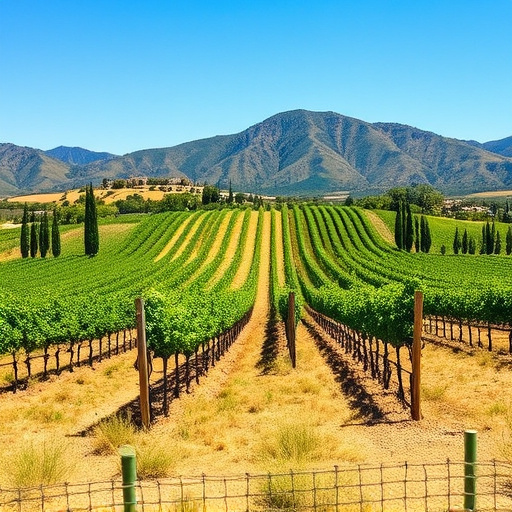In Arizona's Sonoita region, eco-conscious vineyards thrive through ancient dry farming techniques, conserving water and minimizing energy while producing distinctive wines that reflect the area's unique terroir. These sustainable practices, combined with organic and biodynamic methods, attract environmentally conscious consumers seeking authentic experiences among the diverse vineyards in Sonoita, AZ. The region's semi-arid climate and well-draining soils enable natural dry farming, fostering healthier grapevines and a rich variety of wine flavors. By preserving biodiversity and setting examples for responsible land management, these vineyards lead the way in sustainable viticulture.
“Uncover the enchanting world of eco-conscious vineyards in the Sonoita region of Arizona, where dry farming practices thrive. This article delves into the unique challenge and beauty of this sustainable approach, exploring its impact on wine quality and local ecosystems. From understanding the region’s perfect storm of soil and climate to observing a day in the life of an organic vineyard, we uncover what sets these vineyards apart. Discover how Sonoita’s vibrant landscape benefits from these eco-friendly practices, making it a hotspot for both wine enthusiasts and conservationists.”
- The Unique Challenge and Beauty of Dry Farming in Sonoita, AZ
- What Makes Eco-Conscious Vineyards Stand Out?
- Understanding the Soil and Climate: Sonoita's Perfect Storm for Viticulture
- Exploring Sustainable Practices in Action: A Day in the Life of an Eco-Friendly Vineyard
- The Impact of Dry Farming on Wine Quality and Taste Profiles
- Supporting Local Ecosystems: The Role of Organic Vineyards in Conservation
The Unique Challenge and Beauty of Dry Farming in Sonoita, AZ
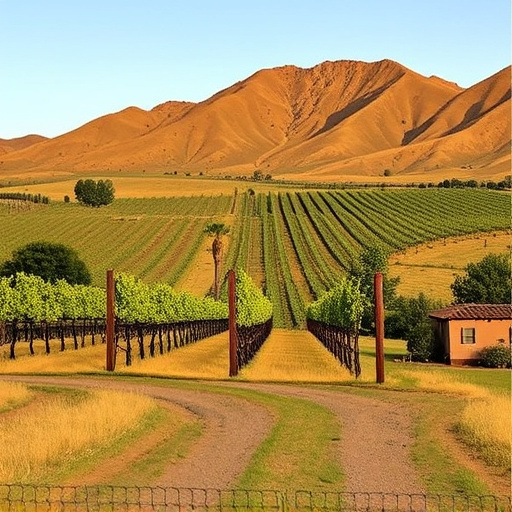
In the heart of Arizona’s Sonoita region, vineyards face a unique challenge: dry farming. Unlike their irrigation-dependent counterparts, these wineries embrace the region’s arid climate, extracting water from the air and soil to nurture grapes. This ancient practice is not just a survival strategy; it’s an art that celebrates the terroir—the distinct character of the land—of Sonoita. The results are vibrant, unique wines with deep, complex flavors, reflecting the beauty and challenge of their birth.
Dry farming in this region requires meticulous care and innovative techniques. Vineyard managers must closely monitor weather patterns, employ strategic canopy management to reduce water stress on grapes, and choose grape varieties suited to the climate. Despite these challenges, the reward is a terroir-driven wine experience that connects drinkers directly to the land. Among the many vineyards in Sonoita, AZ, those practicing dry farming offer a remarkable opportunity to taste the true essence of this beautiful, challenging landscape.
What Makes Eco-Conscious Vineyards Stand Out?
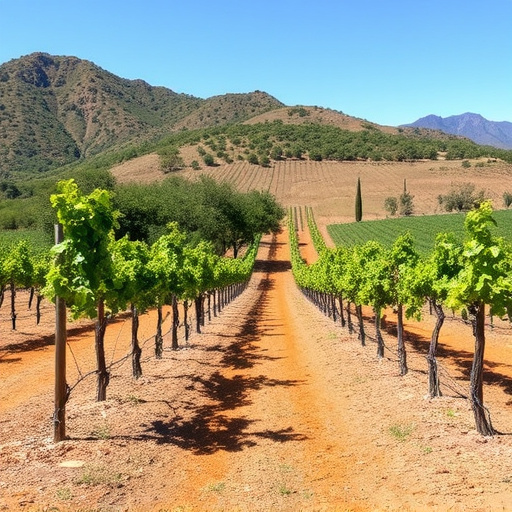
Eco-conscious vineyards in the Sonoita, AZ region are making waves for their commitment to sustainable and regenerative practices. These vineyards stand out not only for their breathtaking landscapes but also for their innovative approach to dry farming, minimizing irrigation and relying on natural water sources. This method conserves water, reduces energy usage, and minimizes the vineyard’s overall environmental footprint.
What sets these vineyards apart is their dedication to preserving biodiversity, both within the vineyard and in the surrounding ecosystem. They often employ organic and biodynamic methods, avoiding synthetic chemicals and promoting a healthy soil microbiome. By fostering a balanced ecosystem, these vineyards not only produce high-quality grapes but also contribute positively to the local wildlife and habitat. This holistic approach to viticulture makes them leaders in sustainable wine production, attracting environmentally conscious consumers seeking authentic and eco-friendly vineyards in Sonoita, AZ.
Understanding the Soil and Climate: Sonoita's Perfect Storm for Viticulture
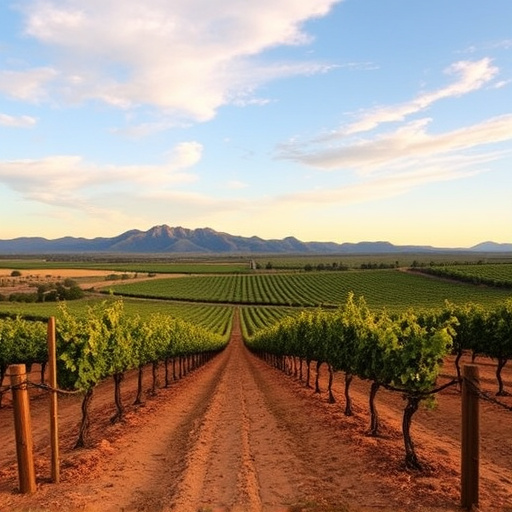
The Sonoita region in Arizona, known for its stunning landscapes and vibrant community, offers a unique ecosystem for dry farming practices in vineyards. Understanding this region’s soil and climate is key to appreciating why it has become a hotspot for eco-conscious viticulture. The area boasts well-draining soils, a vital factor for dry farming techniques, which minimize water usage and promote healthier grapevines.
With its semi-arid climate, hot summers, and cool nights, Sonoita creates the perfect “storm” for growing grapes. This microclimate, coupled with the region’s diverse soil types, allows for a wide range of grape varieties to thrive. Local vineyards benefit from these natural conditions, avoiding the need for extensive irrigation, making them eco-friendly and sustainable in their approach to viticulture.
Exploring Sustainable Practices in Action: A Day in the Life of an Eco-Friendly Vineyard
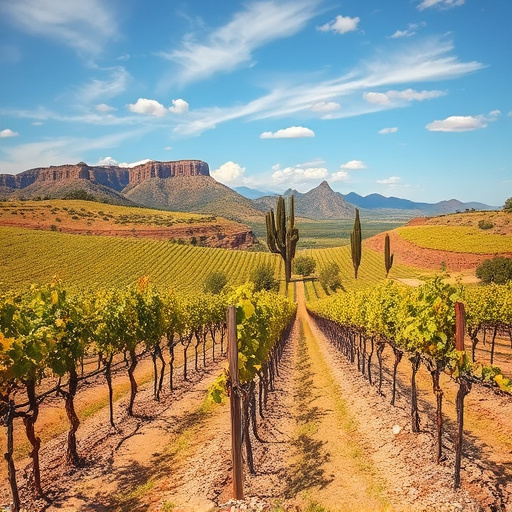
In the heart of Arizona’s Sonoita region, eco-conscious vineyards are leading the way in sustainable wine production. A day in the life of one such vineyard reveals a meticulous dance between nature and nurture. Early morning checks ensure the vines receive adequate sunlight while minimizing water usage – a cornerstone of dry farming practices unique to the region. Farmers meticulously monitor soil health, relying on beneficial insects and organic matter rather than synthetic chemicals for pest control.
Throughout the day, every decision is an act of stewardship. From hand-pruning to reduce labor costs and vine stress to using renewable energy sources for power, these vineyards are living testaments to sustainable practices. Their commitment extends beyond the vineyard floor, with many employing local techniques like greywater recycling and compost pile management to further minimize their environmental footprint. Exploring these eco-friendly operations offers a glimpse into the future of viticulture, where balance and stewardship go hand in hand, shaping the landscape not just of wine, but also of responsible land management in the Sonoita region.
The Impact of Dry Farming on Wine Quality and Taste Profiles
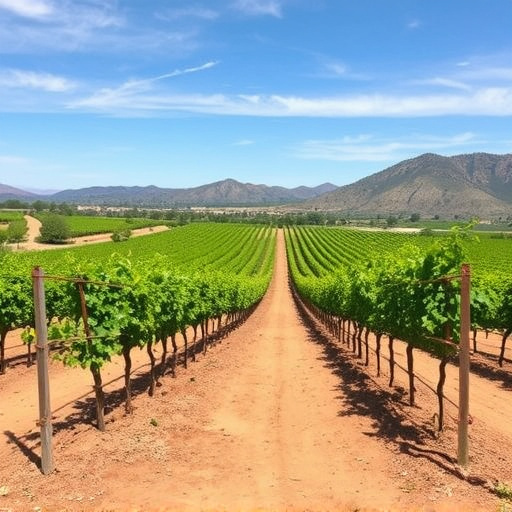
The unique dry farming practices in the Sonoita region have a profound impact on the wine produced by local vineyards. This traditional method, where grapes are grown with minimal irrigation, allows for a more intense and distinctive flavor profile in the final product. By embracing the natural variability of climate and soil conditions, winemakers in these vineyards create wines that showcase the terroir—the unique characteristics of the land from which they come.
Dry farming intensifies the concentration of sugars and flavors within the grape grapes, resulting in wines with richer, more complex tastes. The lack of irrigation also encourages deeper root systems, enabling vines to access deeper water sources during droughts, ensuring a consistent supply of high-quality grapes year-round. This sustainable approach not only benefits the environment but also contributes to the exceptional quality and distinct taste profiles that have become synonymous with vineyards in Sonoita, AZ.
Supporting Local Ecosystems: The Role of Organic Vineyards in Conservation
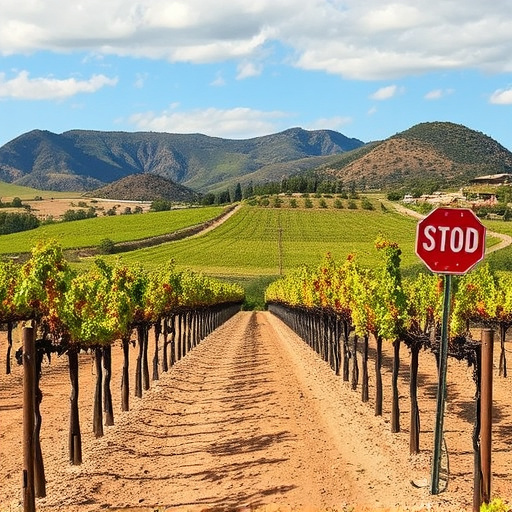
In the heart of the Sonoita region, dry farming practices in organic vineyards play a vital role in supporting local ecosystems and contributing to conservation efforts. These vineyards serve as sanctuaries for diverse wildlife, including birds, butterflies, and beneficial insects, by minimizing the use of synthetic chemicals and promoting a balanced ecosystem. The organic approach allows natural predators to control pest populations, reducing the need for harmful pesticides.
Furthermore, dry farming techniques, characterized by minimal irrigation, encourage deep root systems in the vines, fostering healthier soil that supports a broader array of plant and animal life. This ecological balance not only enhances the overall health of the vineyard but also contributes to the region’s biodiversity. By embracing organic practices, vineyards in Sonoita AZ are leading the way in sustainable agriculture, demonstrating that environmental stewardship can go hand in hand with high-quality wine production.
The vineyards in Sonoita, AZ, stand as a testament to the harmonious marriage between sustainable practices and exceptional wine production. Through dry farming, these eco-conscious vineyards not only preserve local ecosystems but also craft wines of remarkable quality. By understanding the unique soil and climate, embracing organic principles, and implementing innovative techniques, they navigate the challenges of nature with grace. These efforts ensure that future generations can continue to enjoy both the beauty of Sonoita’s landscapes and its exquisite wines.
